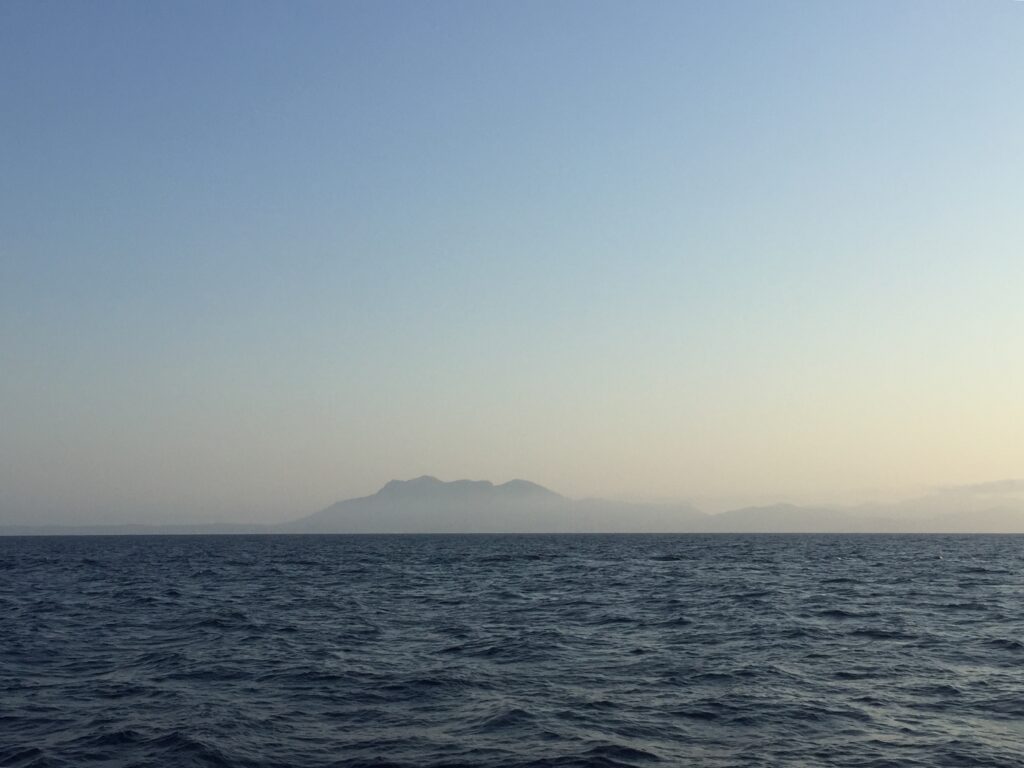DAY 3: WATER IN THE SEA IS SALTY
There are some truths in the world that are very obvious, but you often forget them – such as that water in the sea is salty. If you don’t live at the seaside, and go for a swim in the sea for just ten days a year, you might forget about it. Also – your whole life you know what time it is, be it by knowing how to look at the clock, or you just have it written on your phone, you don’t even know that there was a time when most people didn’t know how to read time from clocks. On old sailing ships only captain and a few people closest to him knew to read time, but regular sailors and workers on the boat didn’t. We have this clock on Marleen that annoyingly rings every 30 minutes – it is because back in time sailors didn’t know what time it is by looking at the clock but by hearing it one time more every 30 minutes. So – at noon it rings once, at half past noon it rings twice….at 4 o’clock it will ring for eight times and you would know your shift is over and you can go home.
Just like that, we often forget about a common truth that migration isn’t something new and shocking, but it is the most human thing to do. People have always migrated, it is a fact. They did it because of industrialization, because of wars, or some other things – they sometimes did it because they wanted to, sometimes because they had to, but they’ve always migrated.
We always tend to perceive the time we live in as a very special and outrageous, often forgetting to look at things on a larger scale, and history tells us everything. That is how today a historian among us explained a short history of human migration, and it is a truth that we should not forget.
Today, on a new island we arrived to, in a coffee shop we had our discussion, we asked for a frappe (an extremely Greek drink to have), but this time without straws – I guess we are just trying to somehow cope with this guilt of not stopping climate change from happening (it isn’t like we know how to, but by really small steps) and that’s probably why we always, at the end of our discussion, somehow come back to it. Here on a boat we cannot separate trash or recycle, but if you happen to have someone from Serbia in your group, at least try to save caps of plastic bottles and give those caps to them, because there is an action A cap for a handicap – google it.
Talking about „google it“ this was also a lesson learnt today as we were discussing the impact of ourselves and how we can potentially change the world – or at least a tiny tiny part of it. We are all traveling back to different countries after this summer school but our ideas will still be in our minds so there has to be a way to actually use this to have an impact. When we started discussing the idea of „what comes after this“ we soon realized that technology can have a huge potential to connect us even though we’re no longer sailing on the same ship. As we are, however, all sitting in the same boat (puns intended) we have to work together across countries, borders, nationalities and religions to share our visions and resources we have. „Google it“ was thus a concrete call to action for us to remind ourselves that there is already a million brilliant ideas out there – you just have to make the effort to google it and inform yourself.
Based upon this realization we agreed to continue sharing the tools and resources we already have in our own networks – like opportunity websites, reading lists or funding agency contacts – in order to not only be enriched by this amazing chance to sail for 10 days, but to continue to enrich others by sharing what made us grow personally and professionally.
Be excited for more logbook entries to come after we will safely arrive at the places we call home about things we would like to share with you – and potentially also a bit grief that the water indeed does only taste salty at the sea.

